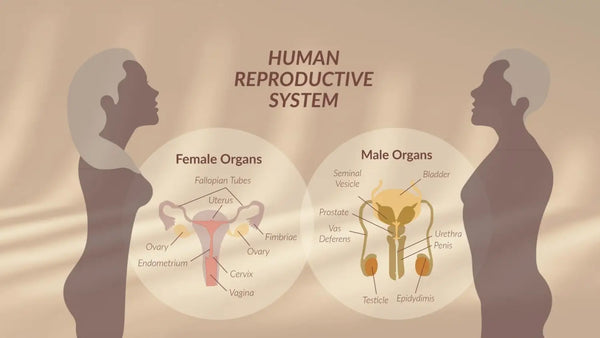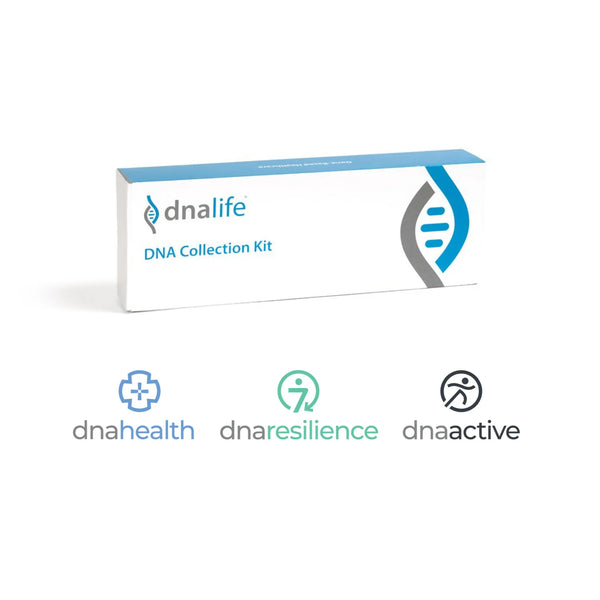Hedelmällisyys tarkoittaa yksilön, olipa kyseessä mies tai nainen, kykyä tulla raskaaksi ja saada raskaus aikaan. Se on lisääntymispotentiaalin mittari. Yksinkertaisesti sanottuna hedelmällisyys on kyky saada lapsia tai lisääntyä. Naisilla hedelmällisyys liittyy yleensä kykyyn vapauttaa munasarjoista terve munasolu ovulaation aikana, jonka siittiöt voivat hedelmöittää ja käynnistää raskauden. Naisen hedelmällisyyteen vaikuttavat muun muassa säännölliset kuukautiskierrot, munasolujen laatu ja lisääntymiselinten terveys. Miehillä hedelmällisyys liittyy terveiden siittiöiden tuotantoon, jotka voivat tehokkaasti hedelmöittää naisen munasolun. Siittiöiden määrä, liikkuvuus (liikkuvuus) ja morfologia (muoto) ovat tärkeitä miehen hedelmällisyyteen liittyviä näkökohtia.
Tämän artikkelin on kirjoittanut Anna Lindfors (MA psykologi & seksologi; luoja, joka on luonut kirjan biohakkerointi Rakkaus ja ihmissuhteet -verkkokurssin luoja)
Takaisin perusasioihin: Mitä hedelmällisyys ja lapsettomuus ovat?
Hedelmällisyyden ymmärtäminen on olennaista yksilöille ja pariskunnille, jotka suunnittelevat lapsia tai yrittävät tulla raskaaksi. Se voi auttaa ohjaamaan perhesuunnittelua koskevia päätöksiä ja auttaa keskustelemaan terveydenhuollon ammattilaisten kanssa, kun he hakevat apua lisääntymiseen liittyvissä kysymyksissä.
Lapsettomuus tarkoittaa sitä, että henkilöllä tai pariskunnalla on vaikeuksia tulla raskaaksi, vaikka he ovat yrittäneet jonkin aikaa. Se ei ole vain naisten ongelma, vaan se voi koskettaa myös miehiä. Lapsettomuus voi olla emotionaalisesti haastavaa raskautta yrittäville henkilöille ja pariskunnille.

Kuva: Ihmisen lisääntymisjärjestelmä (kuvasta biohakkerointi Rakkaus & suhteet verkkokurssi)
Erilaiset elämäntapavalinnat voivat vaikuttaa sekä miesten että naisten hedelmällisyyteen. Näitä ovat tupakanpoltto, muiden tupakkatuotteiden käyttö, marihuanan käyttö, runsas alkoholinkäyttö ja laittomien huumeiden käyttö. Pitkäaikainen altistuminen korkealle henkiselle stressille, kohonneille lämpötiloille, kemikaaleille, säteilylle tai voimakkaille sähkömagneettisille tai mikroaaltopäästöille voi heikentää naisen hedelmällisyyttä. Liiallisen liikunnan tiedetään vaikuttavan naisten ovulaatioon ja hedelmällisyyteen. Lisäksi sukupuolitauteihin on suhtauduttava vakavasti, sillä ne voivat aiheuttaa munanjohtimien tukkeutumisen.
Naisille, lapsettomuus tarkoittaa kyvyttömyyttä tulla raskaaksi tai kantaa raskaus loppuun asti. Ikä on tärkein naisen hedelmällisyyteen vaikuttava tekijä. Koska yhä useammat naiset hankkivat lapsia myöhemmällä iällä, heidän hedelmällisyyspotentiaalinsa on vähentynyt. Naisilla on syntyessään kaikki munasolut, joita heillä on elämänsä aikana, ja myös munasolujen ikä etenee heidän mukanaan. Syntyessään munasoluja on noin 1-2 miljoonaa. Murrosikään mennessä määrä vähenee noin 300 000-500 000:een. 37-vuotiaana munasoluja on jäljellä noin 25 000, ja 51-vuotiaana enää 1 000 munasolua. Naisten hedelmällisyys on korkeimmillaan parikymppisenä, jolloin 25-30 prosentin todennäköisyys tulla raskaaksi kuukausittain. Kolmekymppisenä hedelmällisyys laskee ja kiihtyy 37 ikävuoden jälkeen. Nelikymppisenä mahdollisuus tulla raskaaksi laskee 5 prosenttiin.
Miehillä, lapsettomuus voi johtua siittiöiden vähäisestä määrästä, siittiöiden huonosta liikkuvuudesta tai huonolaatuisesta spermasta. Hormonaalinen epätasapaino, kivesten ongelmat, geneettiset sairaudet, infektiot, epäterveelliset elämäntavat, kuten tupakointi tai runsas alkoholinkäyttö, ja jotkin lääkkeet voivat myös vaikuttaa miesten hedelmällisyyteen.
Miesten hedelmällisyyteen liittyy huolestuttavia havaintoja. Vuonna 2017 tutkijat tekivät tutkimuksen jossa analysoitiin tietoja 185 tutkimuksesta, joihin osallistui 42 935 miestä, jotka antoivat siemennäytteitä vuosina 1973-2011. He havaitsivat, että siemennesteen määrä laski merkittävästi, noin 60 prosenttia, länsimaissa. Tämä on merkittävä huolenaihe niille, jotka haluavat saada lapsia.
Kuinka biohackata hedelmällisyyttä?
Naisten hedelmällisyyden hakkerointi
Naisten hedelmällisyyden edistämiseen kuuluu terveellisten elämäntapojen omaksuminen ja asianmukaiseen lääketieteelliseen hoitoon hakeutuminen. Seuraavassa on muutamia strategioita naisten hedelmällisyyden edistämiseksi:
- Ylläpidä terveellinen paino: Sekä yli- että alipaino voivat vaikuttaa hedelmällisyyteen. Pyri tasapainoiseen painoon noudattamalla ravitsevaa ruokavaliota ja harrastamalla säännöllistä liikuntaa.
- Syö hedelmällisyyttä edistävää ruokavalio: Nauti tasapainoista ruokavaliota, jossa on runsaasti vihanneksia, marjoja, hedelmiä, vähärasvaisia proteiineja, kuten ruoholla ruokittua lihaa ja kalaa, sekä riittävästi terveellisiä rasvoja (kuten ekstra-neitsytoliiviöljyä). Vältä prosessoituja elintarvikkeita, sokereita, prosessoituja öljyjä, prosessoituja viljoja ja soijaa sekä prosessoituja maitotuotteita, sillä ne lisäävät matalan tason tulehdusta kehossa.
- Ota synnytystä edeltäviä vitamiineja: Ota folaattia (ei foolihappoa!) sisältäviä synnytystä edeltäviä vitamiineja vähintään kolme kuukautta ennen raskauden alkamista. Folaatin bioaktiivinen muoto (kuten 5-MTHF) auttaa ehkäisemään tiettyjä synnynnäisiä vammoja ja tukee sikiön varhaista kehitystä.
- Hallitse stressitasoja: Korkea stressitaso voi vaikuttaa kielteisesti hedelmällisyyteen. Harjoittele stressinhallintatekniikoita, kuten meditaatiota, joogaa, syvähengitysharjoituksia tai harrasta mieluisia aktiviteetteja stressin vähentämiseksi.
- Säännöllinen (syklipohjainen) liikunta: Harrasta kohtuullista liikuntaa säännöllisesti. Liikunta voi auttaa säätelemään hormoneja ja edistää yleistä hyvinvointia. Vältä kuitenkin liiallista liikuntaa, sillä se voi häiritä ovulaatiota.
- Ymmärrä kuukautiskierto ja hormonit: Seuraa kuukautiskiertoasi ja tunnista hedelmällinen aikajaksosi. Kun tiedät, milloin ovulaatiosi on todennäköisin, voit lisätä hedelmöittymismahdollisuuksia. Käytä menetelmiä, kuten kehon peruslämpötilan seuraamista (sisältyy moniin terveysseurantalaitteisiin, kuten Oura ing), kohdunkaulan liman seuraamista tai ovulaation ennustuspakkausten käyttöä.
- Hormoniseuranta: Käytä kehittyneitä hedelmällisyyden seurantatyökaluja, kuten hedelmällisyyssovelluksia, puettavia laitteita tai hormonitestaussarjoja hormonaalisten muutosten seuraamiseksi koko kuukautiskierron ajan. Nämä tiedot voivat auttaa tunnistamaan ovulaation ja optimoimaan hedelmöittymisen ajoituksen.
- Minimoi alkoholin ja kofeiinin saanti: Liiallinen alkoholi ja kofeiini kulutus on yhdistetty heikentyneeseen hedelmällisyyteen. Rajoita alkoholijuomien ja kofeiinipitoisten juomien nauttimista.
- Vältä tupakointia: Tupakointi voi heikentää hedelmällisyyttä merkittävästi. Lopeta tupakointi ja vältä laittomien aineiden käyttöä optimoidaksesi hedelmöittymismahdollisuutesi.
- Hallitse taustalla olevia terveystiloja: Tietyt sairaudet, kuten polykystisten munasarjojen oireyhtymä (PCOS), kilpirauhasen toimintahäiriöt tai endometrioosi, voivat vaikuttaa kielteisesti hedelmällisyyteen. Pyydä lääkärin neuvoja ja hoitoa kaikkiin olemassa oleviin terveystiloihin. Käy terveydenhuollon tarjoajan luona säännöllisissä tarkastuksissa ja keskustele raskaussuunnitelmista. Hän voi arvioida yleistä terveydentilaa ja antaa tilannekohtaista ohjausta.
-
Geneettinen testaus: Geneettinen testaus voi antaa tietoa hedelmällisyyteen liittyvistä erityisistä geneettisistä merkkiaineista. Geneettisten alttiuksien ymmärtäminen voi auttaa sinua tekemään tietoon perustuvia päätöksiä ja yksilöllistämään lähestymistapasi.

- Akupunktio ja vaihtoehtoiset hoidot: Jotkut ihmiset kokevat, että täydentävät hoidot, kuten akupunktio, rohdosvalmisteet tai perinteisen lääketieteen käytännöt tukevat heidän hedelmällisyysmatkaansa.
- Aseta seksuaaliterveys etusijalle: Säännöllinen seksuaalinen toiminta, erityisesti kuukautiskierron hedelmällisen ajan, voi lisätä hedelmöittymismahdollisuuksia. Ylläpidä tervettä seksuaalisuhdetta kumppanisi kanssa ja keskustele avoimesti hedelmällisyystavoitteista.
- Henkilökohtaiset hedelmällisyyshoidot: Koeputkihedelmöitys (IVF) ja muut hedelmöityshoidot (ART) ovat kehittyneet merkittävästi. Harkitse työskentelyä hedelmällisyysasiantuntijan kanssa, jotta voit tutkia yksilöllisiin olosuhteisiisi räätälöityjä vaihtoehtoja.
Jos olet huolissasi ikään liittyvästä hedelmällisyyden heikkenemisestä, harkitse munasolujen pakastamista (munasolujen kryosäilytys) nuoremmalla iällä parantaaksesi mahdollisesti tulevia hedelmöittymismahdollisuuksia.
Miehen hedelmällisyyden hakkerit
Miesten hedelmällisyyden edistämiseen liittyy erilaisia elämäntapavalintoja ja käytäntöjä, jotka voivat tukea siittiöiden terveyttä ja yleistä lisääntymistoimintaa. Seuraavassa on joitakin strategioita, jotka voivat auttaa edistämään miesten hedelmällisyyttä:
- Optimoi ravitsemus: Tasapainoinen ruokavalio joka sisältää runsaasti antioksidantteja, vitamiineja ja kivennäisaineita, on hyödyllistä miesten hedelmällisyyden kannalta. Ota mukaan runsaasti antioksidantteja sisältäviä elintarvikkeita, kuten hedelmiä, vihanneksia, pähkinöitä ja siemeniä. Riittävä saanti vitamiinit C-, D- ja E-vitamiinien, sinkin, seleenin ja folaatin riittävä saanti voi myös tukea siittiöiden terveyttä.
- Harrasta säännöllisesti liikuntaa: Säännöllinen liikunta voi tukea yleistä terveyttä, myös lisääntymisterveyttä, esim. testosteronitasojen kohottaminen. Harrasta kohtalaisen intensiivistä liikuntaa vähintään 150 minuuttia viikossa. Vältä liiallista kestävyysliikuntaa tai äärimmäistä harjoittelua, sillä ne voivat tilapäisesti vaikuttaa siittiöiden tuotantoon.
- Vältä liiallista lämpöä: Korkeat lämpötilat voivat vaikuttaa siittiöiden tuotantoon. Optimaalisen siittiöiden terveyden edistämiseksi vältä pitkäaikaista altistumista kylpytynnyreille, saunoille, tiukoille vaatteille ja toiminnoille, jotka tuottavat liiallista lämpöä nivusiin.
- Hallitse painoa: Ylläpitäminen terveen painon ylläpitäminen normaalin painoindeksin (18,5-24,9) sisällä voi vaikuttaa myönteisesti hedelmällisyyteen. Sekä lihavuus että alipaino voivat vaikuttaa kielteisesti siittiöiden tuotantoon ja laatuun. Pyri saavuttamaan ja ylläpitämään terveellinen paino tasapainoisen ruokavalion ja säännöllisen liikunnan avulla.
- Rajoita alkoholin ja tupakoinnin käyttöä: Liiallinen alkoholinkäyttö ja tupakointi on yhdistetty heikentyneeseen siittiöiden laatuun ja hedelmällisyyteen. Rajoita alkoholinkäyttöä ja vältä tupakointia lisääntymisterveyden optimoimiseksi.
- Rajoita altistumista ympäristömyrkyille: Vähennä altistumista ympäristömyrkyille ja kemikaaleille, jotka voivat vaikuttaa kielteisesti hedelmällisyyteen. Tähän kuuluu torjunta-aineille, teollisuuskemikaaleille, raskasmetalleille ja tietyille kotitalouksien puhdistusaineille altistumisen minimointi.
- Hallitse kroonisia terveystiloja: Tietyt krooniset terveysongelmat, kuten diabetes, korkea verenpaine ja hormonaalinen epätasapaino, voivat vaikuttaa miehen hedelmällisyyteen. Tee yhteistyötä terveydenhuollon ammattilaisten kanssa mahdollisten olemassa olevien terveystilojen hallitsemiseksi ja niiden hoidon optimoimiseksi.
- Rajoita säteilylle ja sähkömagneettisille kentille altistumista: Pitkäaikainen altistuminen säteilylle, kuten röntgensäteilylle tai tietyissä työympäristöissä, sekä elektronisten laitteiden sähkömagneettiset kentät voivat vaikuttaa siittiöiden terveyteen. Minimoi altistuminen mahdollisuuksien mukaan.
- Seksuaaliterveyden asettaminen etusijalle: Säännöllinen seksuaalinen toiminta, erityisesti hedelmällisen ajanjakson aikana kuukautiskierron aikana, voi lisätä hedelmöittymismahdollisuuksia. Ylläpidä tervettä seksuaalisuhdetta kumppanisi kanssa ja keskustele avoimesti hedelmällisyystavoitteista.
- Harkitse hedelmällisyystestausta: Jos sinulla on vaikeuksia raskaaksi tulemisessa tai olet huolissasi hedelmällisyydestä, harkitse hakeutumista kattavaan hedelmällisyyden arviointiin. Terveydenhuollon ammattilainen tai lisääntymisasiantuntija voi arvioida esimerkiksi siittiöiden määrää, liikkuvuutta ja morfologiaa mahdollisten ongelmien tunnistamiseksi ja asianmukaisen ohjauksen antamiseksi.
Opi, miten optimoida hormonit hedelmällisyyden edistämiseksi + parantaa yhteyttä kumppanisi kanssa alkaen biohakkerointi Rakkaus ja suhteet -verkkokurssilta.
Lopuksi:
Vaikka hedelmällisyyttä tutkitaan jatkuvasti, on tärkeää huomata, että hedelmällisyys on monimutkainen prosessi, johon vaikuttavat monet tekijät, kuten genetiikka ja yksilölliset olosuhteet.
Vaikka biohakkerointi voivat tarjota mahdollisia keinoja hedelmällisyyden optimoimiseksi, on kuitenkin ratkaisevan tärkeää neuvotella terveydenhuollon ammattilaisten, hedelmällisyysasiantuntijoiden tai lisääntymisendokrinologien kanssa. He voivat antaa asiantuntevaa opastusta yksilöllisten tarpeiden ja olosuhteiden perusteella. Lisäksi hedelmällisyys on monimutkainen prosessi, johon vaikuttavat useat eri tekijät, eikä onnistumista voida taata minkään tietyn keinon avulla. biohakkerointi menetelmällä.
Tietoja kirjoittajasta:

Anna Lindfors on biohakkerointi Seksologi ja psykologi, joka on erikoistunut seksologiseen terapiaan. Ammattinsa kautta Anna näkee, kuinka yleisiä seksuaalisuuteen liittyvät haasteet ovat. Hänen intohimonsa on auttaa sinua yhdistymään uudelleen elinvoimaasi ja palauttamaan nautinto KAIKILLE elämänalueille.
Anna aloitti matkansa seksologiksi navigoimalla haasteidensa läpi. Endometrioosidiagnoosi 20-vuotiaana, krooninen kipu ja hormonihoidot siirsivät hänet naiseuden juhlistamisesta ongelmien korjaamiseen. Hän voimaannutti itsensä kaikilla osa-alueilla biohakkerointi Endometrioosin remissioon ja yhdistämällä itsensä uudelleen aistillisuuteensa ja naiseuteensa.
"Seksuaalisuus on ytimemme, minkä vuoksi seksuaalisuutesi vapauttaminen on niin voimakasta ja kohottaa koko elämääsi."
Anna keräsi asiantuntijaryhmän ja loi 6 viikon mittaisen biohakkerointi Love & Relationships -verkkokurssin auttaakseen yksilöitä ja pariskuntia löytämään uudelleen yhteyden terveytensä kriittisimpään osa-alueeseen: nautintoon. Osallistu kurssille täällä.






